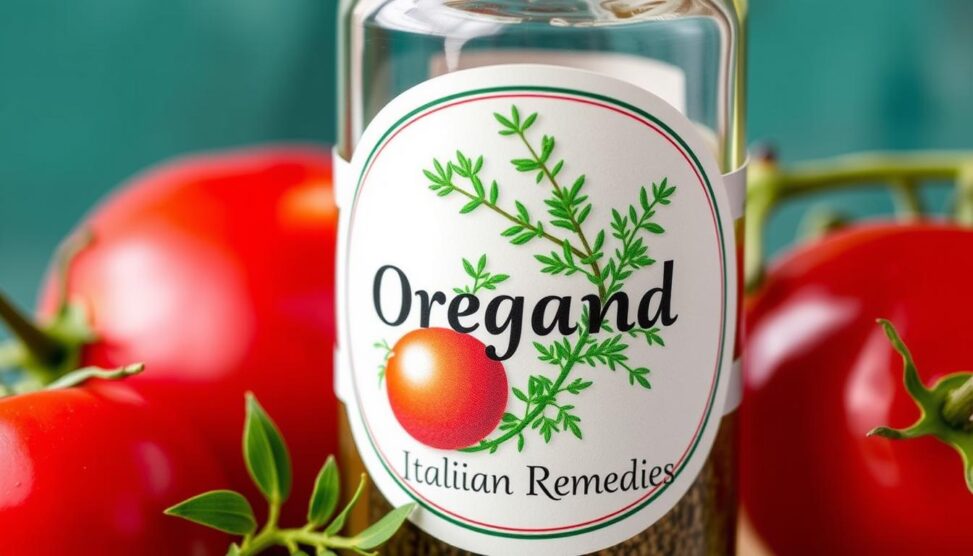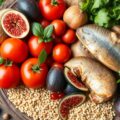Italians are known for their vibrant health and longevity. Their secret? Time-honored natural healing traditions. These remedies blend ancient wisdom with Mediterranean bounty.
In Italy, health is more than a state of being. It’s a way of life. Family gatherings often last hours, featuring multi-course meals.
From Rome to Tuscany, Italians rely on nature’s pharmacy. They turn to natural solutions for their well-being.
These remedies aren’t just old wives’ tales. They’re part of Italy’s rich cultural tapestry. Here, food and medicine often overlap.
Many of Italy’s 60 million people still use age-old remedies. Lemon wards off colds, while ‘canarino’ tea soothes stomach aches.
These practices are as Italian as pasta and gelato. Modern science is now recognizing their value beyond Italy’s borders.
Key Takeaways
- Traditional Italian remedies blend centuries-old wisdom with natural ingredients
- Italian culture views health holistically, integrating diet, family, and natural cures
- Common ingredients like lemon, garlic, and herbs play dual roles in cuisine and healing
- Family meals and traditional remedies are central to Italian wellness practices
- Ancient healing methods are gaining scientific recognition and global interest
The Philosophy Behind Traditional Italian Remedies
Italian folk remedies are a rich mix of culture and tradition. They see health as a balance of body, mind, and spirit. These practices blend natural ingredients with spiritual beliefs.
These remedies come from centuries of wisdom passed down through families. Italians treasure these practices as valuable heirlooms. They connect people to their ancestors and nature.
Italian folk medicine values high-quality, natural ingredients. Many come from local sources, showing the importance of regional resources. This focus on natural elements matches Italy’s love for quality in life.
- 76% of Italians believe in the efficacy of traditional remedies for minor health issues
- Over 40% of Italians incorporate herbalism into their wellness routines
- 60% of Italians use herbal remedies alongside conventional medicine
These practices remain popular due to their perceived effectiveness. Many Italians still use these time-tested methods today. They blend ancient wisdom with modern wellness approaches.
Common Natural Ingredients in Italian Remedies
Italy’s herbal medicine uses a variety of natural ingredients. The Mediterranean climate supports many medicinal plants. These plants form the basis of numerous traditional remedies.
Olive oil, often called “liquid gold,” is vital in Italian wellness. Its anti-inflammatory properties make it a common remedy ingredient. Garlic is also prized for its natural antibiotic effects.
Italian herbs are crucial in the country’s healing traditions. Basil and rosemary are popular choices. Lesser-known herbs also play a role in folk remedies.
Sage leaves are used in Italian toothpastes. They’re valued for their anti-bacterial properties.
- Chamomile for relaxation
- Fennel for digestive health
- Hyssop for respiratory issues
About 90% of plants in Italian herbal medicine come from wild flora. This shows Italy’s strong connection to nature. The other 10% are cultivated, including Bergamot orange.
Calabria, Italy produces 95% of the world’s Bergamot. These ingredients are the base for Italy’s 4,250 herbalist shops, or erboristeria.
These unique stores distribute traditional remedies. They keep ancient wisdom alive in modern Italy.
Traditional Italian Remedies for Digestive Health
Italian traditional medicine offers natural remedies for digestive issues. These time-tested solutions soothe stomach troubles and promote gut health. Many use common kitchen ingredients for ancient Italian healing practices.
Chamomile tea is a popular choice for calming upset stomachs. Fennel seeds aid digestion and freshen breath. Chewing these seeds after meals can help reduce bloating.
Homemade pasta is thought to be easier on the digestive system. Its slow preparation and simple ingredients contribute to digestive benefits. This aligns with the Italian philosophy of eating fresh, whole foods.
- 68% of Italians trust home remedies for common ailments
- 40% use lemon to soothe stomach discomfort
- 62% focus on preventative measures rather than immediate cures
Milk thistle, rich in silymarin, supports liver health and aids digestion. Dandelion root stimulates bile flow and promotes healthy digestion. Both are key ingredients in Italian digestive remedies.
These ancient Italian practices still play a vital role in modern wellness routines. Many find relief from digestive issues by embracing these natural solutions. They also experience improved overall health as a result.
Herbal Remedies and Their Uses
Italian herbal medicine is deeply rooted in the country’s culture. The tradition of using local herbs for healing spans centuries. Many Italians still rely on these natural solutions for various health issues.
Traditional Italian Remedies often use common herbs from gardens and kitchens. Chamomile tea is a favorite, with 65% of Italians using it for relaxation. Garlic is another staple, valued by 50% for its immune-boosting qualities.
The botanical food supplement market in Italy is booming. It reached nearly 1 billion euros from May 2015 to May 2016. This shows Italians’ ongoing love for herbal remedies.
Making herbal remedies at home is a common practice. Here are some popular methods:
- Infusions: Steeping herbs in hot water
- Tinctures: Extracting herb properties using alcohol
- Poultices: Applying crushed herbs directly to the skin
Notably, 70% of Italians use herbal remedies in their daily health routines. This shows the lasting trust in natural solutions passed down through generations.
Italian Remedies for Cold and Flu Relief
Italian home remedies offer natural solutions for cold and flu relief. These practices focus on boosting immunity and easing symptoms. Let’s explore some popular Italian healing traditions.
A classic remedy combines lemon and honey to soothe sore throats. Italians often add fresh thyme to their teas to calm coughs. Thyme is an officially approved remedy for coughs in Germany.
Garlic is crucial in Italian cold-fighting methods. Studies show garlic supplements reduce cold symptoms. Raw garlic contains allicin, a potent antibacterial compound.
Italians consume raw garlic or infuse it with lemon juice. This process maximizes its benefits over 12 hours.
- Herbal teas with sage, thyme, and mint
- Nourishing broth-based soups
- Hot wine (Vin Brule) for its anti-inflammatory properties
Moderate red wine consumption may lower the risk of catching colds. Drinking 8 to 14 glasses weekly is linked to fewer colds. However, consume alcohol responsibly and in moderation.
These Italian remedies reflect a holistic approach to wellness. They emphasize prevention and natural healing. Try these time-tested practices to support your health during cold season.
Traditional Remedies for Skin Care

Italian folk remedies offer natural solutions for skin care. These practices use simple ingredients found in many Italian kitchens. Olive oil, a key ingredient, acts as a powerful moisturizer.
Honey is another important element in Italian natural remedies. Its antioxidants and enzymes help various skin conditions. Many Italians use honey masks to improve their skin.
Herbal infusions are crucial in Italian skincare traditions. Chamomile tea is often used to soothe irritated skin. Rose water tones and hydrates the skin.
Citrus fruits also contribute to skin health in Italy. Their vitamin C brightens skin and boosts collagen production. Lemon juice is a common natural astringent.
The Mediterranean diet supports skin health from within. It’s rich in fruits, vegetables, and fish. This diet, along with external remedies, forms a holistic skincare approach.
Rejuvenating Drinks from Italy
Italy’s herbal medicine tradition includes rejuvenating drinks. These beverages blend taste with health benefits. They’re a key part of Italian traditional medicine.
Bitter digestifs, or amari, are essential Italian remedies. Italy produces hundreds of bitters, more than any other country. These drinks often come from monasteries and abbeys.
Amari contain herb and spice blends. Many claim to help digestion and boost appetite.
Fruit-based elixirs are also common in Italian medicine. Pomegranate elixir is rich in antioxidants. It may support heart health and is made in Calabria.
Bergamot is another popular choice. It’s believed to help manage cholesterol and reduce inflammation.
Espresso plays a role in Italian wellness too. It offers more than just a caffeine boost. The Spritz Italiano provides a non-alcoholic option with added benefits.
Embrace these Italian drinks for wellness. They blend old wisdom with modern nutrition knowledge.
The Role of Diet in Traditional Wellness
Italian natural healing traditions value diet for overall wellness. The Mediterranean diet is the basis of Italian eating habits. It’s known worldwide for its health benefits.
This approach focuses on fresh, seasonal ingredients. It also promotes a balanced intake of nutrients. In Italy, meals are social events, not just fuel.
Lunch is the most important meal. It can last up to two hours with multiple courses. This slow eating style supports better digestion and nutrient absorption.
The Italian diet changes by region. It reflects local traditions and available ingredients.
- Northern Italy: Rice, potatoes, cheese, fish, pork, and sausage
- Central Italy: Pizza and spaghetti
- Southern Italy: Olives, olive oil, tomatoes, garlic, and eggplant
Seasonal eating is crucial in Italian natural healing. Winter meals include hearty dishes like lasagne or bean soup. Summer favors lighter fare such as vitello tonnato.
This practice ensures varied nutrient intake throughout the year. The Italian approach to diet offers valuable lessons for modern wellness.
It emphasizes fresh ingredients, balanced meals, and social dining. By using these principles, we can use food as a key part of holistic health.
Modern Adaptations of Traditional Remedies
Traditional Italian Remedies are getting a new lease on life. Ancient wisdom is being updated for our fast-paced world. L’Orvietan, a cure-all from 1603, claimed to treat various ailments.
Italian traditional medicine is inspiring natural health products. Many L’Orvietan ingredients are still used in modern herbal medicine. This fusion makes Traditional Italian Remedies more accessible today.
Interest in these time-honored practices is on the rise. A study on Italian folk medicine used 97 sources. It found that 4% of Italians still believe in magical healing.
This small percentage shows the lasting appeal of traditional remedies. By adapting these practices, we’re preserving history and creating new wellness paths.





Leave a Reply